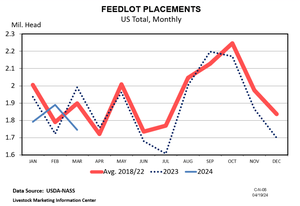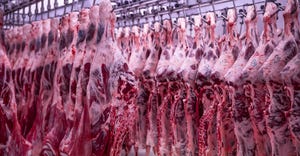The votes are in and Democrats have regained control of the U.S. House. Here’s a look at the political landscape for the next two years.
November 8, 2018

It is likely that Republicans will look back someday on the last two years as a lost opportunity to pass more legislation. Because it is likely the next two years will be more a period of nominations, confirmations, executive action and investigation than actual legislation.
With the House in Democrat hands—although at this time it appears the margin will be relatively small—much of the legislation will be limited to required spending bills. And the pressure from a Republican Senate and President Trump will, hopefully, be to rein in spending.
What’s ahead
In the recent past, not just the last two years, the Senate was the place where bills went to die. Hundreds of bills passed the House that got nowhere in the Senate.
Look for that to continue and increase. Some of that will depend on whether the Democrat Party yields to the more extreme wings of their party or chooses to focus on issues more central to the needs of the country.
As a dealmaker, President Trump will be willing to work with the Democrats on certain issues where at least small measures can be passed. Rep. Nancy Pelosi attributed the House changeover to the health care issues that have not been resolved. That’s a tougher deal to broker.
The President and Pelosi both mentioned infrastructure. Immigration is the elephant in the room but we are not closer to a solution there than a decade ago. Even the fate of the DACA “kids” has not been enough leverage to get the Democrats to the table. Meanwhile, a moving political time bomb heads toward the border.
The strengthening of the Republicans’ hold on the Senate should be adequate protection on the tax cut reforms now powering the economy. During a press conference the morning after the election, President Trump said some small adjustments could be made to negotiate a further tax cut for middle class citizens but gave no details.
The bottom line is that, while the ruling party almost avoided losing their majority in the first midterm of an American president—a handful vs. the common 40-60 seats—and gained Senate seats, it is what it is. The most damaging political fact is the loss of committee chairmanships and control of the legislative agenda in the House. The divisions within the Republican party that slowed legislative progress the last two years was simply short-sighted bickering by politicians.
But those divisions will seem small compared to the gap between the present Democrat party and the Republicans, yet, Rep. Pelosi is already talking bipartisanship. [PJ1]
Our experience has been “bipartisanship” and “compromise” meant conservatives giving up their principles and moving to the left. With a significant cadre of far-left activist groups within the Democrat Party, it remains to be seen what path the party will take.
In fact, the takeover of national politics by the most radical groups—as evidenced in the Kavanaugh hearings, in demonstrations around the country, the injection of race and gender into nearly every issue and the polarization of the immigration issue—and the results of this election, show that one given of American politics no longer holds.
It was President Clinton’s campaign that coined the expression, “It’s the Economy, Stupid,” and it’s been believed ever since. Yet President Obama got re-elected during the worst economy in modern times. And the Republicans lost House seats this midterm during the strongest economic growth since WWII.
It will take some analysis, but apparently there are significant swaths of the electorate to whom other causes are more important than their job and pay. That cannot be good for animal agriculture in the long run.
Rural-urban divide
The divide between rural and suburban voters has widened. The analysts have talked about the Republicans’ difficulties with suburban women. California passed Proposition 12, putting very specific housing and management limits on the production of poultry, hogs and veal calves.
The problem is the Democrats have talked of getting rid of tax cuts, restoring government regulations, creating more government support programs and more spending on illegal, that is, non-citizens. While they will not have the power to do those things, it shows their continued lack of understanding of what drives the economy, what creates jobs and what kills business.
For example, the Farm Bill came up during the President’s news conference, and he noted that the Democrat’s refusal to allow work rules for able-bodied welfare recipients is what’s stalling its progress.
How the election will affect the ratification of the USMCA agreement or new treaties with the EU or China is hard to say. U.S. Trade Representative Lighthizer spent a lot of time consulting with the Democrats in crafting USMCA, operating under the possibility that this could happen. Just how “nonpartisan” Democrat leadership will choose to be regarding treaties is up for display.
In summary, the Republicans under President Trump performed much better than the historical standards of the past. They gained several Senate seats. The House margin will be much smaller than it has been.
Losing control of the committees will be politically more important. The potential for legislative goals has changed but narrowly holding one branch of government will not allow the Democrats to reverse the economic engine Trump and the Republican Congress managed to crank up.
While the legislative theater will be quieter, what will happen in the long-term theater—reforming the federal judicial roster, including perhaps the Supreme Court—will continue its extremely important progress.
Dittmer is a longtime beef industry commentator and executive vice president of the Agribusiness Freedom Foundation.
About the Author(s)
You May Also Like





